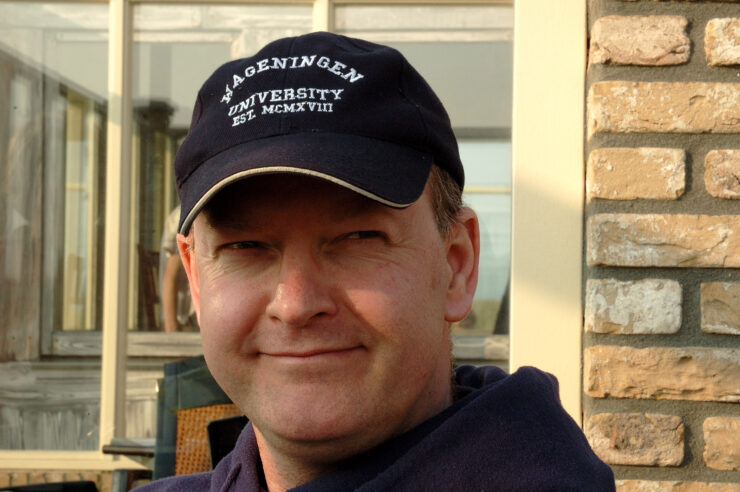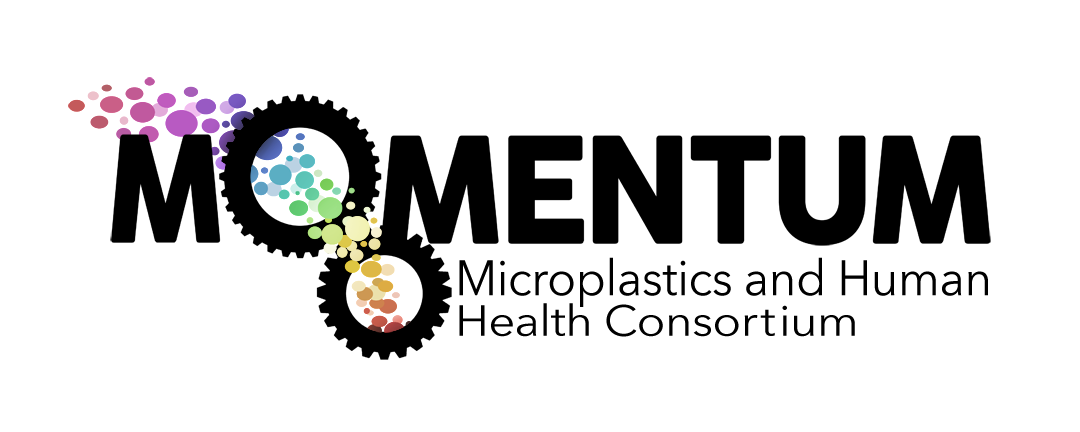News
Meet the Crew: Bart Koelmans
In MOMENTUM, we collaborate with more than thirty research partners and industrial partners. By no means everyone knows each other, which is why we are starting a new section: Meet the Crew! This time with Bart Koelmans.

Who is Bart Koelmans?
“I am a full Professor in Aquatic Ecology and Water Quality at Wageningen University & Research. I’m a chemist by training, specialised in environmental chemistry and environmental issues, and I run the MicroplasticLab.”
What kind of research are you doing?
“I’ve been working on the fate and effects of chemicals, and accumulation in food webs. There was always a fairly high share of biology in the work, although I’m a chemist by training. Increasingly, we’re doing research with hazardous particles, such as soot particles and black carbon particles, and engineered nanomaterials. We developed a method to measure the partitioning of chemicals, using polymers. Polymer chemistry and the interactions of chemicals with polymers became more and more important in the research that we do.”
“Around 2010, we realised that we might have some conceptual approaches that could be helpful to answer some of the key questions related to the problem of plastic in the environment. We started with a couple of small projects and desk studies, but after a while we were able to develop some tool sets to assess the importance of microplastics ingestion for exposure to organic chemicals, and also analytical methods for microplastic analyses and standard techniques for effect assessments and consistent risk assessments. Linking microplastic exposure and effects in a consistent way is a big challenge, so the work we do has gradually morphed into mainly plastic-related research.”
“Essentially, our work is quite technical, but I am increasingly asked to advise internationally on these topics, for example for the World Health Organization, the United Nations, and the European Commission. We do a lot of science, but we also try to connect with the public and policymakers. Science communication is important. How do we proceed and how do we communicate on risks that are surrounded by high uncertainties? We have to be very careful about that.”
What will be your role within MOMENTUM 2.0?
“We will contribute to the risk assessment, especially in work package six. I have known Dick Vethaak for quite some time, his institute was end-user in one of our earlier projects. We hope to integrate our concepts for describing plastic particles as a continuum to make risk assessments more accurate and realistic.”
You are also project leader in one of seven new ZonMw projects on microplastics: ATHENA.
“That’s right. ATHENA will develop a screening tool for quality assurance and quality control, as well as probability density functions for continuous microplastic characteristics. These functions will standardise exposure data of microplastics. It allows different data sources to be used to estimate the risks of microplastics to humans.”
What is your ultimate goal?
“My professional goal is to help improve water quality and environmental quality in general, and that extends to our biosphere, including through drinking water. And more personally, I am a member of society and I care about the environment. My time is better spent working towards a cleaner environment than some of the other options I could have done in my career. Besides, I am a scientist. When I see a puzzle, I enjoy finding a conceptual solution to a problem. But my dream is to help master’s and PhD students become responsible scientists and consciously contribute to society. Good collaborations and working with colleagues every day gives me great satisfaction.”
What do you do in your spare time?
“In my spare time, I still work,” Koelmans says, laughing. ‘But I also like sleeping, walking, listening to music and going to the theatre. And I like cooking, which is a way to relax, and photography, I like taking pictures of people.”
What’s your favourite cuisine?
“I like to cook Italian, Indian and Asian. Is cooking a kind of research? No, for me it’s the other way round: I always say that research is more like cooking. Cooking is a good metaphor for many things.”
Text: Myrna Tinbergen




